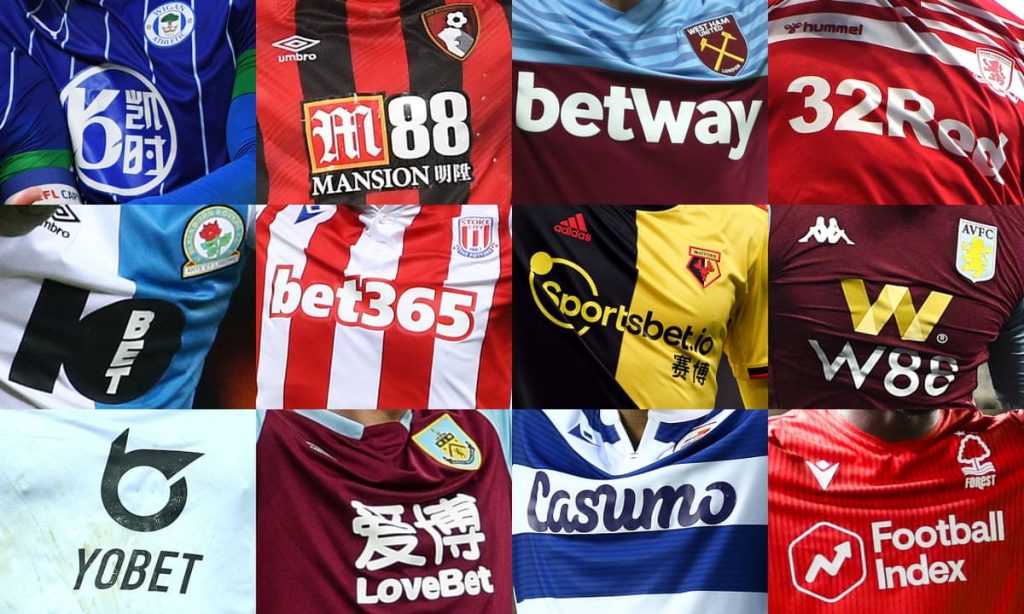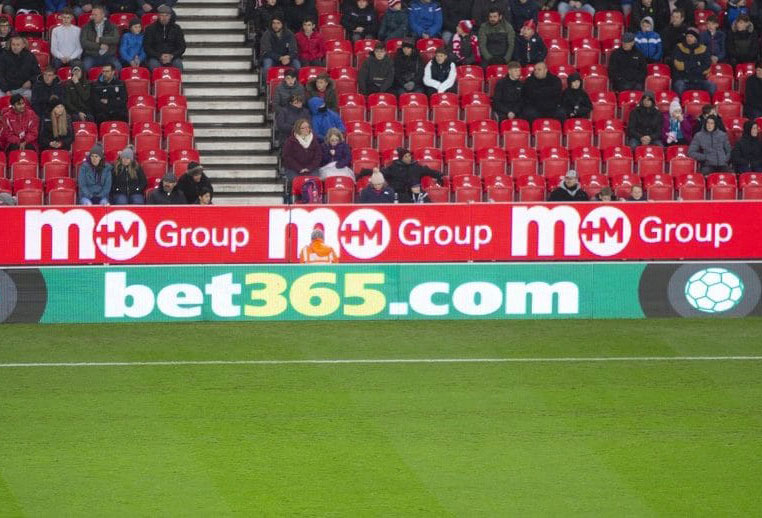NHS psychologist Dr Matthew Gaskell calls for additional measures to protect the public from the gambling industry and warns against the continuation of gambling sponsorship in football
Leading consultant psychologist and clinical lead director of the NHS Northern Gambling Service Dr Matthew Gaskell believes the sooner gambling sponsorship is kicked out of football, the better it will be for the nation.
Intricate rules introduced in 2000 by the Football Association placed restrictions on how and where sponsorship could appear on a football kit whilst specifically forbidding tobacco products from being advertised. However, the removal of tobacco sponsorship and a reduction in the appearance of alcohol companies has led to a sharp rise in the number of gambling companies operating inside of football.
With the 2005 Gambling Act working as a catalyst for this by allowing gambling firms to advertise on television and radio for the first time, their appearance in the Premier League has grown year on year, with only seven clubs last season without a partnership with a betting brand.
“There has got to be a comprehensive set of measures to protect people from it, just as we did with tobacco,” said Dr Gaskell.
“The public has been so easily swayed by the messages that they’ve seen on the leisure pursuits and the entertainment side of it but once upon a time, that’s how tobacco adverts were.
“It was a picture of glamour and it was cool; it was exciting. A very similar thing is happening now with the gambling industry and it’s following the tobacco playbook.”
With over 20-years experience working in and around addictions, Dr Gaskell has seen first-hand the devastating impact that they can have on an individual. Fears are rife that the current level of advertising in football is too high with this exposure having a detrimental impact across all levels of society. “There is a complete absence of public health messaging about gambling and gambling addiction,” he explains.
“We’re saturated with images of enjoyment, of entertainment and of groups of lads all together having a great time betting on football but I’m afraid that’s not what I see every day. The public doesn’t have a holistic view of gambling they’re completely distorted in their perception.
“It’s totally transformed from when I was a youngster. I would play football and other sports, but we wouldn’t talk about betting. You wouldn’t dream of going to a betting shop, it was something that was behind frosted glass.”
Dr Gaskell explains that part of the problem lies with the portrayal of gambling, particularly in the way that it is depicted in advertising. More often than not, we see it shown to be a quick and easy way to make money, but this is far from the truth. Clever marketing strategies are deployed by the betting firms to attract the attention of their target audience, and the use of celebrity endorsements, who are often role models to younger fans, normalises the dangers behind the industry. “The way it’s presented is really enticing, particularly for young people who are still developing,” he says.
“The betting companies know that gambling revenue tends to come from males, the majority of it tends to come from younger males. And they know if they can embed gambling within football so that they’re almost synonymous with each other that it’s going to deliver huge revenues and clearly that’s happened.
“I think the government has a really important role to play in the future in raising the profile and the public health profile of gambling. It needs a public health approach rather than a responsible gambling, individualised kind of approach.”

As a season ticket holder himself, Dr Gaskell is able to understand both ends of the spectrum. He sees the bombardment of advertising on a matchday whilst also seeing the unfortunate by-product of this with the treatment of many sports fans at his own gambling clinics.
Football’s love affair with gambling has led to the industry becoming ingrained within the sport. A recent YouGov survey commissioned by the charity GambleAware earlier this year found that as many as 1.4 million adults or 2.7% of the population suffered from problem gambling. But one of the biggest concerns stemming from this relationship is the impact it is having on young children.
These fans are being exposed to the dangerous subliminal messaging before they are old enough to even gamble.
Subconsciously, this exposure is having an influence on their behaviour as they grow up and where their loyalty ends up lying. As a result, the pressure is mounting on firms, with professionals, campaigners and MPs now calling for the removal of gambling sponsorship in football.
“I think number one is to take all gambling advertising and sponsorship out of sport and football. That means no TV advertising, online advertising, shirt sponsorship, celebrity endorsements, stadium advertising, radio advertising, I mean, it just goes on and on and on, he said.
“In-play sports betting is particularly problematic. It’s addictive, and because it’s online, it means there’s no supervision and people gamble to extremes with no safety net. That’s really problematic and needs to change.”

As one of Britain’s leading gambling expert’s Dr Gaskell has been working alongside the Big Step to help coordinate a partnership between the NHS Northern Gambling clinics and football clubs which are looking to move away from gambling sponsorship.
Their work aims to provide a link between the community and the club in order to offer support and access to anybody in difficulty whilst raising awareness about gambling harm. A partnership is already in place with League Two side Tranmere Rovers and there is also interest from teams in both the Premier League and the Championship leaving Dr Gaskell hopeful of change in the future.
“We’ve had some very good interest and we were delighted with what we’ve been doing so far. There is momentum and I think it’s just a case of how comprehensive that change will be.”